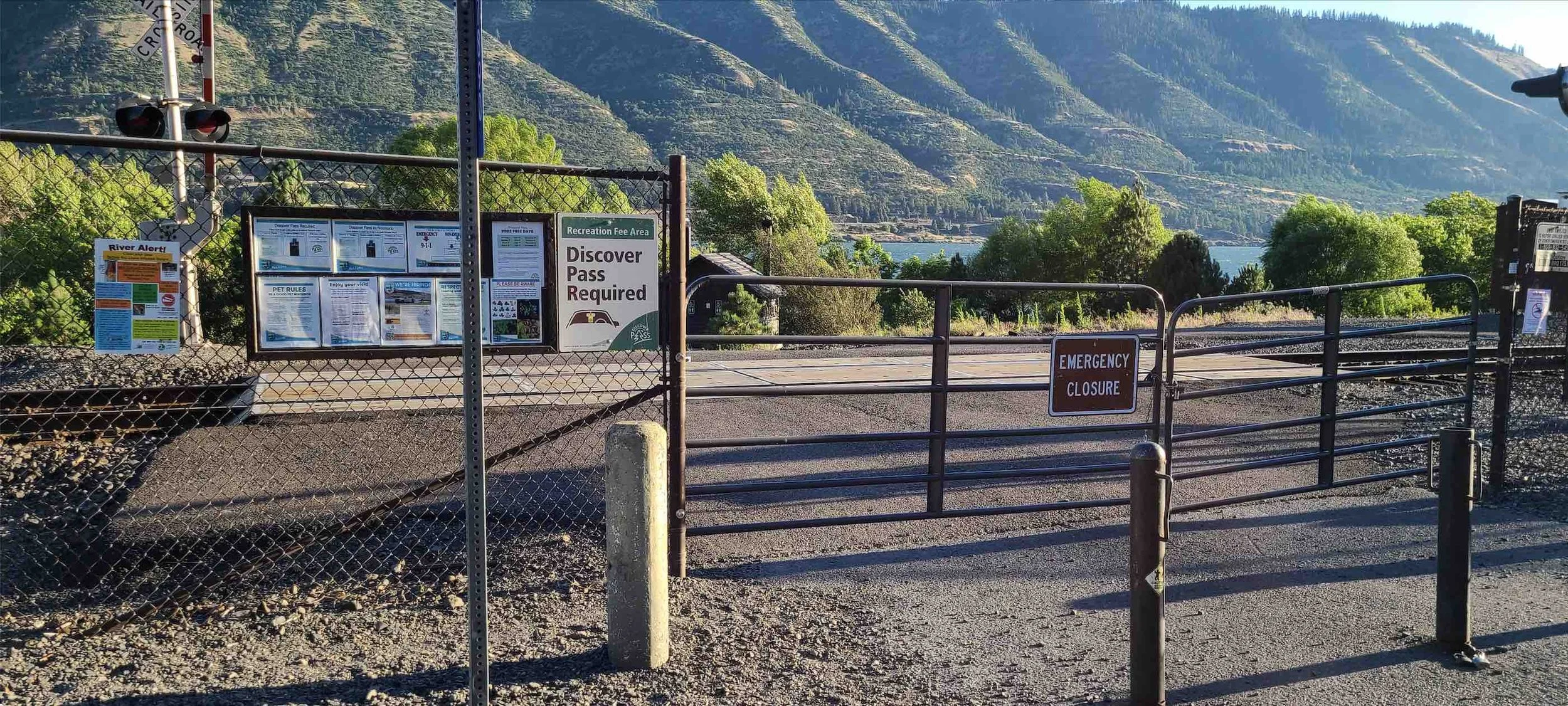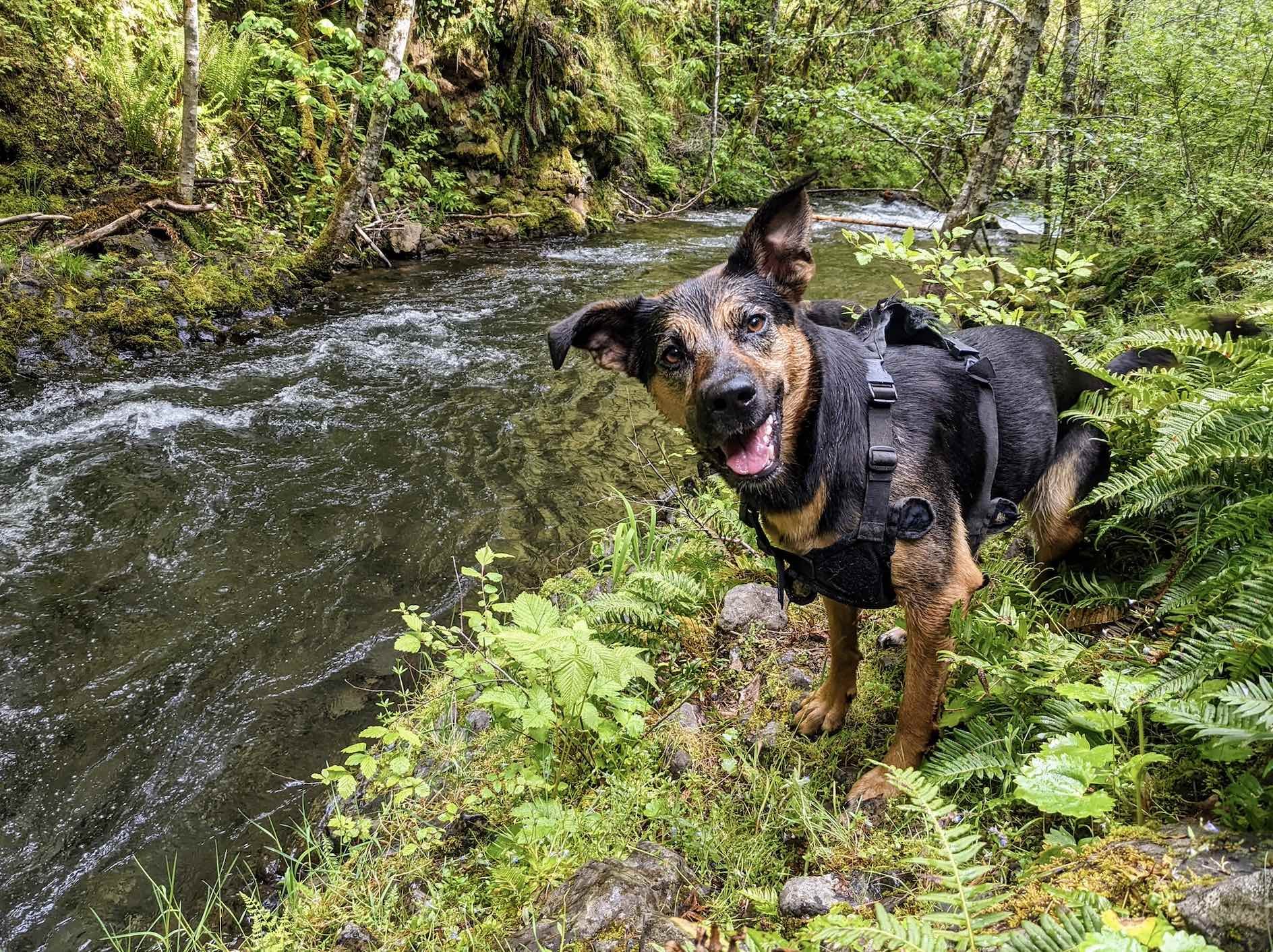Beaches closed due to discharge of untreated wastewater in The Dalles
An emergency closure of public river access is in effect at many locations in the Gorge including The Dalles Riverfront Park and Doug’s Beach. Photo Credit: Robin Denning
By Cole Goodwin
The City of The Dalles Wastewater Treatment Plant discharged effluent (liquid waste or sewage discharged into a river) on July 12th that exceeded the plant’s limit for E. coli (Escherichia coli) due to incomplete disinfection. The event has lead to several beach closures in The Columbia River Gorge.
What is E. coli? E. coli is a naturally occurring bacteria that lives in the lower intestines of warm-blooded mammals. Consuming E. coli and can result in diarhhea, vomiting, stomach pains, cramps, a fever, and even kidney damage. E. coli infections usually last between five-seven days.
“Wastewater treatment staff are working hard to restore the biological balance so that the plant can quickly return to normal operations. Operations at the City of The Dalles Wastewater Treatment Plant are improving but are not yet back in compliance,” said City of The Dalles Public Works in a press release today.
In response to the incident, the treatment plant’s ultraviolet disinfection process has been ramped up to maximum capacity in an attempt to compensate for partially treated effluent due to the upset. In addition, Public Works staff has increased frequency of sampling until E. coli counts are back within permit limits.
Several beaches up and down the Columbia River Gorge have been closed due to the health and safety risks associated with exposure to untreated sewage. The public is being encouraged not to recreate in the Columbia River until the discharge from the wastewater treatment plant returns to compliance.
A swim guide that monitors water quality at various beaches in the Columbia River is available here you can also download the SwimGuide app here.
The screenshot from the Swim Guide shows water quality through the Gorge. Red icons mean that the beach does not meet quality standards, grey means that the water sample information is too old to be accurate and green swimmer icons mean the beach meets water quality standards.
Five test samples taken on Thursday July 14th, 2022 between River Mile 186.5 and 189.5 showed that E. coli levels are below bacterial criteria set by the Oregon Department of Environmental Quality for freshwater recreation.
Oregon's water quality standard says that E. coli levels should not exceed 406 colonies/100 mL. The U.S. Environmental Protection Agency has designated a federal standard that no single sample should exceed 235 colonies/100 mL.
Graph from the City of The Dalles Public Works.
However, beaches will remain closed as a precaution until the discharge from the wastewater treatment plant returns to compliance, meaning that it is no longer discharging untreated sewage into the river.
According to Columbia Riverkeeper, wastewater systems such as The Dalles Wastewater Treament Plant, which are designed to discharge wastewater into the river significantly contribute to pollution in The Columbia River Basin.
Image from SafeRack.com explaining how wastewater treatment plants work.
“Wastewater treatment plants discharge more than one hundred toxic substances into the Columbia River,” said Columbia Riverkeeper.
Wastewater can contain environmental pollutants such as bactiera, viruses, parasites, chemicals, and pharmaceuticals.
When humans, animals, and plants come into contact with these pollutants it can cause real issues for human health and for the health of river ecosystems.
An infographic from the Surfrider Foundation.
Humans who are exposed to raw sewage can develop rashes, flu-like symptoms, skin and eye infections and more.
Sewage can also cause harmful algal blooms that are dangerous to humans, pets, and fish.
Image from Columbia Riverkeeper’s website.
“The Columbia River Basin receives pollution from factories; wastewater treatment plants; and runoff from agricultural lands, logging, and industrial sites, and city streets. As if this weren’t enough, the Columbia Basin is home to hundreds of contaminated waste sites—including the most polluted place in the Western Hemisphere: the Hanford Nuclear Reservation. Studies on Columbia River resident fish, otters, bald eagles, and other species reveal the heavy toll of toxic pollution,” reads the ColumbiaRiverkeeper’s website.
“Clean water matters for the future of Columbia River communities and salmon runs,” said Columbia Riverkeeper.
Support Local News
Our services help keep communities informed about important health and safety issues. Please consider supporting our work by clicking the donate button below.









